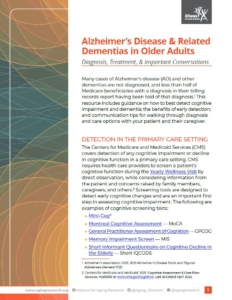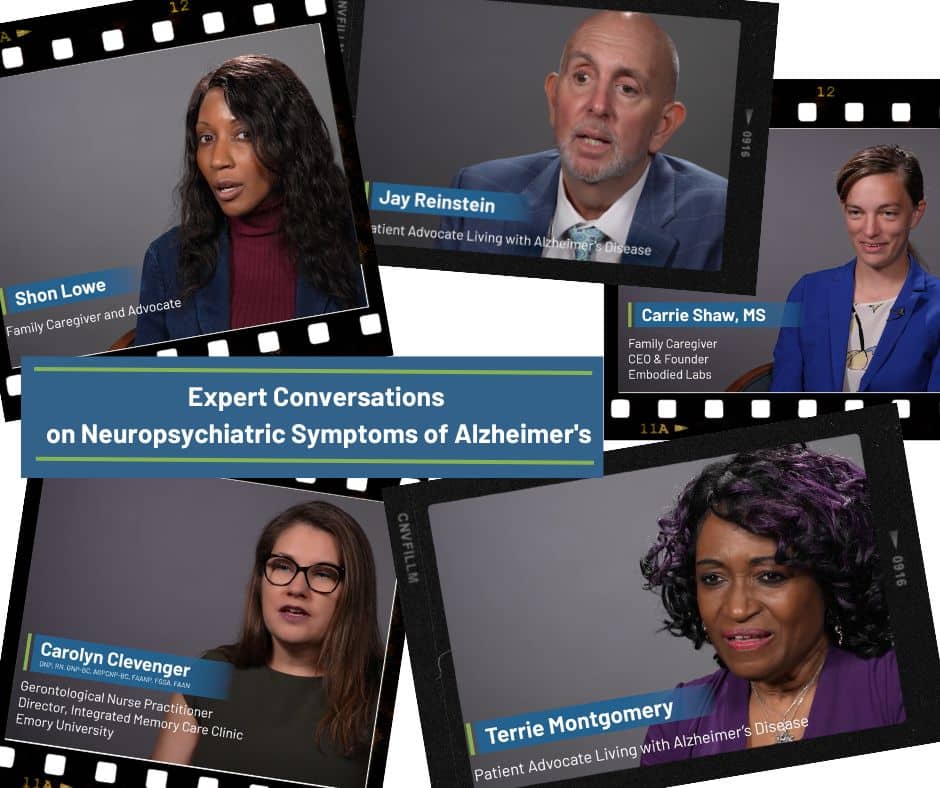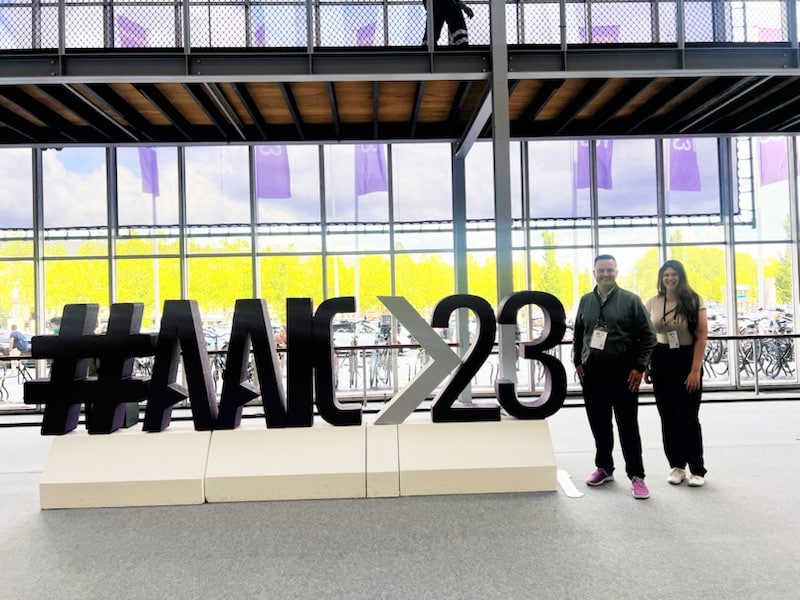More than 20 percent of older adults aged 60 and over suffer from a mental or neurological disorder. The most common neuropsychiatric conditions are dementia and depression, according to the World Health Organization. Substance-use disorders related to use of alcohol, illicit drugs, and prescription medications are increasing in prevalence among older adults, along with chronic pain issues that may complicate treatment access.
Alzheimer’s Disease & Related Dementias in Older Adults: Diagnosis, Treatment, & Important Conversations
Published May 25, 2022
Many cases of Alzheimer’s disease (AD) and other dementias are not diagnosed, and less than half of Medicare beneficiaries with a diagnosis in their billing records report having been told of that diagnosis. This resource includes guidance on how to best detect cognitive impairment and dementia; the benefits of early detection; and communication tips for walking through diagnosis and care options with your patient and their caregiver.
The Healthy Aging Blog
Videos on Mental Health

Webinar: Financing the Cure: Exploring the Ecosystem of Alzheimer’s Disease Research Funding
The Accelerate Cures/Treatments for All Dementias (ACT-AD) held a webinar on July 13, 2021 for an in-depth…
more.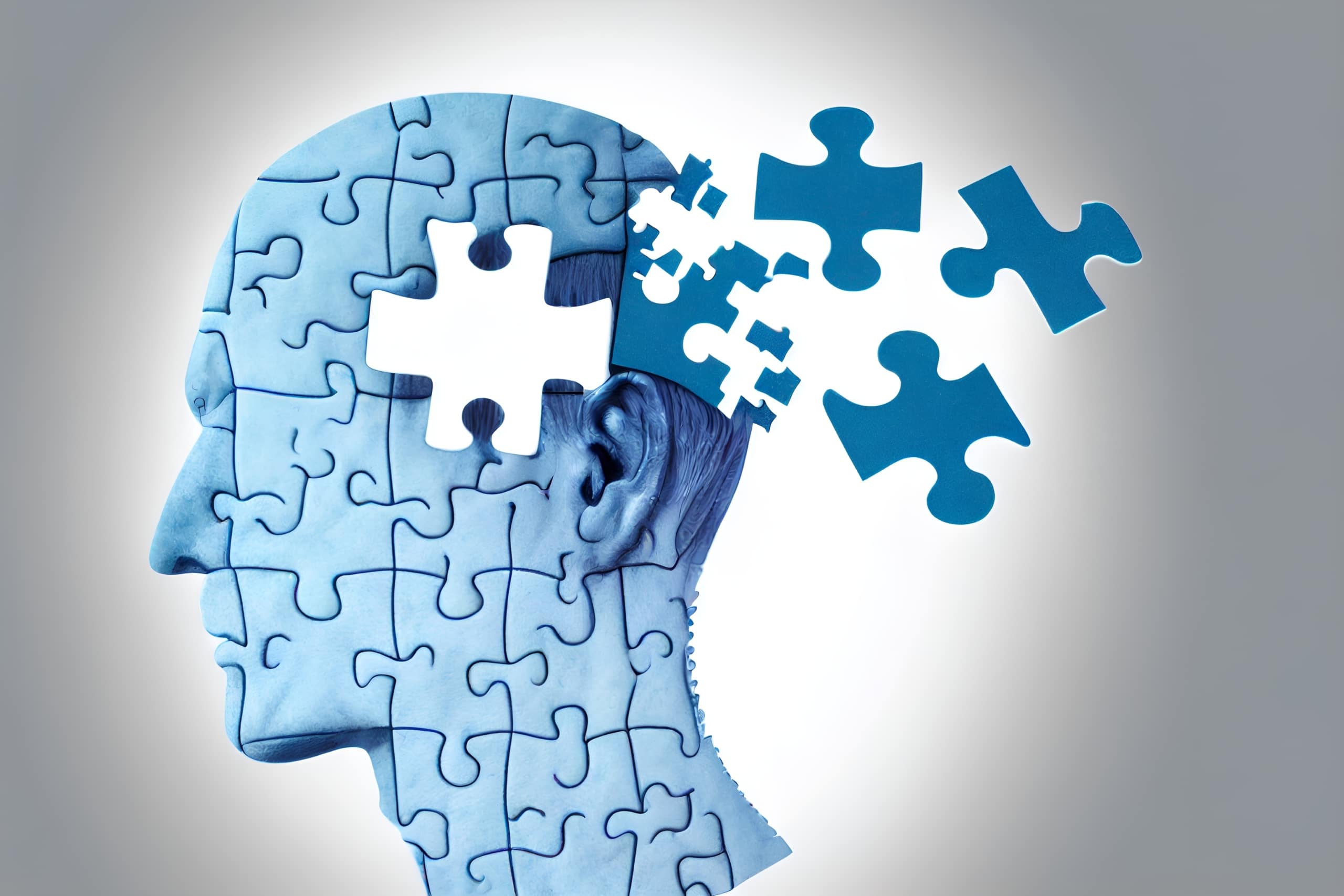
Webinar: Research and Clinical Development in Lewy Body Dementia
On December 7, 2020, ACT-AD held a webinar on cutting-edge research on Lewy Body dementia (LBD). The webinar…
more.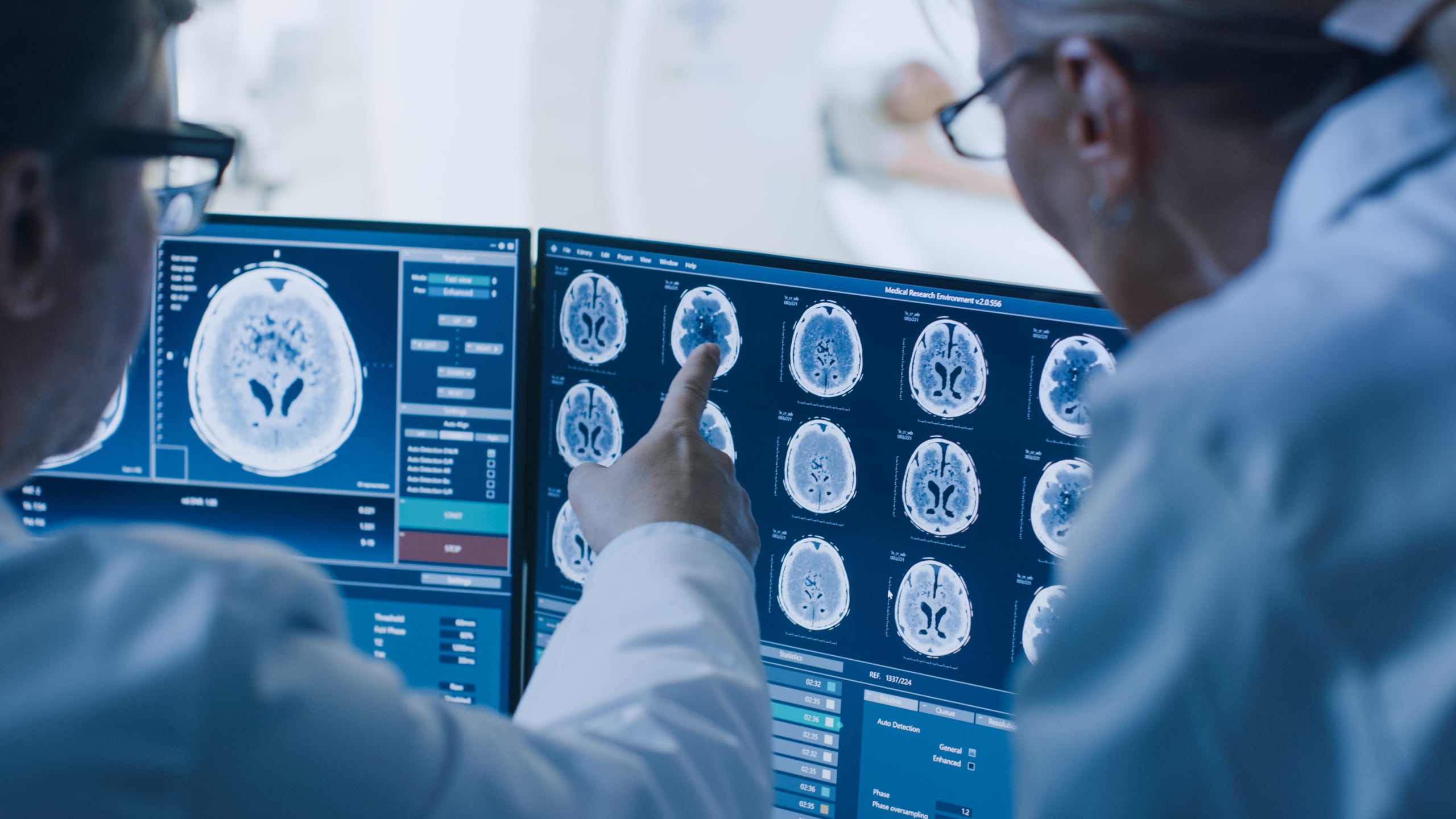
Webinar: The Emerging Antimicrobial Protection Hypothesis of Alzheimer’s Disease
The Accelerate Cure/Treatments for Alzheimer’s Disease (ACT-AD) Coalition held an educational webinar on April 18, 2019 on…
more.
